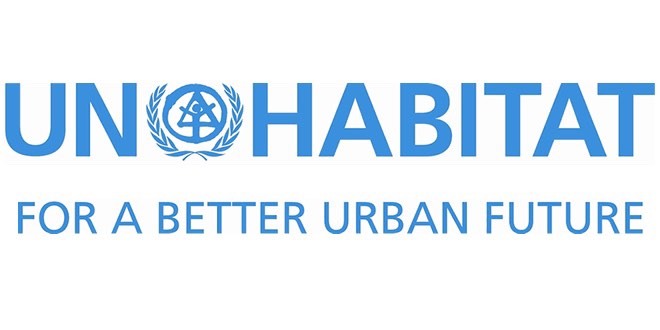Ansari Group Ltd.

UN HABITAT
By Ansari Group Ltd.
SDG Cities Initiative
Ansari Group Ltd. have collaborated with UN-Habitat to launch the “SDG Cities Initiative” in 900 cities by 2030. The Project is worth $4 Trillion.
A. Rationale
Today, 55% of the world’s population lives in cities. By 2030, it is projected that 6 in 10 people will be urban dwellers and by 2050, two-thirds of human beings. The rapidly increasing dominance of urban areas ensures that the process of urbanization is among the most significant global trends of the 21st century.
Urbanization is not only a demographic or spatial phenomenon but a force which if steered and deployed correctly can help the world overcome some of its major global challenges including poverty, inequality, environmental degradation, climate change, fragility and conflict, which are all critical elements of the 2030 Agenda.
As the New Urban Agenda indicates, “Cities can be massive agents of positive change, if they are well-planned, built and governed”. They can be catalysts for inclusion and powerhouses of equitable economic growth. Sustainable cities and human settlements are key drivers for sustainable development; as widely documented, cities can work as a string that connects all other sustainable development goals together, since their density and economies of agglomeration link economy, energy, environment, science, technology and social and economic outcomes. From another angle, working on an approach to apply SDGs in cities, can have simultaneously impact in different dimensions of development.
However, the achievement of this potential is all too often constrained since the different phases of the process that drives sustainable urbanization is poorly functioning. Frequently city data is not adequately detailed, documented and harmonized, or worse, it simply is not available for a whole host of critical issues relating to urban growth and development.
This greatly impacts the quality of decision-making and despite considerable progress in recent years, whole groups of people are not being counted and important aspects of people’s lives and city conditions are still not measured. For many, this can lead to the denial of fundamental rights, and for city authorities, the likelihood that they are not taking full advantage of the transformative potential that urbanization offers.
The phases of the sustainable urbanization process that organically connect data to knowledge, to policy formulation and to action plans, and from there to urban integrated projects that are properly funded are inadequately connected and, in some cases, non-existent. In other words, the value chain of sustainable urbanization proposed by UN-Habitat is not working well.
Compounding this, ineffective systems of urban governance, limited capacities in urban planning, lack of local resources and funding and poor or non-existent mechanisms to measure results for and impacts on populations seriously impede the achievement of the urban SDGs.
The challenge remains how to translate policies and strategies that are based on evidence into sustainably financed and effectively implemented urban integrated projects that drive tangible multidimensional impact that can be properly measured.

B. Objective
The objective of this flagship programme is to realize the potential of cities to drive the achievement of the SDGs. This flagship programme will work with cities, other levels of government, communities, business sector and development partners to connect the value chain of data; evidence-based policy; capacity in governance, planning and financing; and, impact investments, to accelerate the achievement of SDGs in cities.
C. Outcomes, initiatives and results
Together with the other flagship programmes and in collaboration with other UN agencies, state and non-state actors and partners, this Flagship Programme is expected to achieve the following outcomes:
Outcome 1: Strengthened capacities of cities to produce reliable comparable evidence that identifies strategic actions to accelerate urban SDG achievement
Outcome 2: Reinforced value chain that interconnects knowledge, policies, planning, financing and implementation for effective impact
Outcome 3: Strategic urban SDG investments
Outcome 4: Established local and national performance monitoring and certification of excellence projects, processes and initiatives to guide cities in their role as drivers of the SDG implementation
Outcome 1 is implemented through a variety of initiatives, including:
• Establish baselines and city specific SDG targets using the SDG cities monitoring tool1;
• Identify policy, planning and legislation requirements to achieve the city specific SDG targets;
• Identify critical investment requirements that drive SDG achievement;
• Engage stakeholders in an inclusive, participatory, strategic planning process.
Outcome 2 is implemented through a variety of initiatives, including:
• Engage UN country teams by providing data and analysis on a national sample of cities to support the Country Common Assessment, UN Cooperation Framework and joint action;
• Support the development of evidence-based policies, plans and legislation to drive the achievement of the city specific SDG targets, through UN joint action;
• Develop a well-assessed pipeline of urban integrated investments that strategically contribute to the achievement of city specific SDG targets.
Outcome 3 is implemented through a variety of initiatives, including:
• Reviewing SDG performance potential of planned interventions;• Review bankability of planned interventions;
• Optimize SDG performance potential and bankability through cost-benefit analysis, advanced design and investor-ready packaging;
• Identify investment opportunities including through blending public investment with a variety of private sources (impact, philanthropic, and commercial), and international financing institutions;
Support match-making of investments with relevant investors.
Outcome 4 is implemented through a variety of initiatives, including:
• Establish certification criteria based on city specific SDG baselines and targets;
• Apply certification at key stages;
• Utilise certification to facilitate cooperation between cities to maximise impact.
A robust results framework will be developed to track the impact of the flagship programmes through SMART indicators, including:
• By 2030, 900 cities have increased alignment of funding to urban transformative sustainable actions (finance);
• By 2030, 900 cities have improved their performance in achieving the SDGs (performance).
D. UN-Habitat’s comparative advantage
UN-Habitat’s unique value proposition and comparative advantage can be summarized as follows:
• UN Habitat’s global focal point role for sustainable urban development positions the Agency to convene the UN system in developing a shared city monitoring tool and indicators of the Urban SDGs based on the CPI;
• UN-Habitat through developing a UN-System wide city monitoring tool based on CPI is well positioned to engage UN-System wide efforts in policy and capacity development actions. UN-Habitat also has core strengths in urban and housing policy, urban planning, municipal financing and urban legislation;
• UN-Habitat convenes the World Urban Forum, which will be utilised to group countries and cities on similar urban development trajectories so that they can learn from one-another’s positive experiences, including policy and legislative instruments;
• UN-Habitat is in the process of developing a Capital Advisory Platform that links various types of investors with urban investment opportunities., The CAP supports city authorities in developing and de-risking investor-ready projects;
• UN-Habitat is in the process of developing a New Urban Agenda Platform. Outcomes, impacts, policies, tools and experiences developed through the SDG Cities Initiative will reach a wider audience through the NUA Platform.
E. Preliminary proposed locations
SDG Cities is a global initiative that targets initial 900 cities around the world from 2020 to 2030 with the possibility to impact over 1 billion people, with a focus on Least Developing, Low- and Middle-Income countries, in line with the significant global demand for this initiative.
While the initiative will target national representative samples of major, intermediary and small cities, the initiative will periodically run thematic calls for participation, including on mega-cities, climate vulnerable cities, crisis affected cities, etc. These will inform the development of focused normative products.
More info about us: https://unhabitat.org
